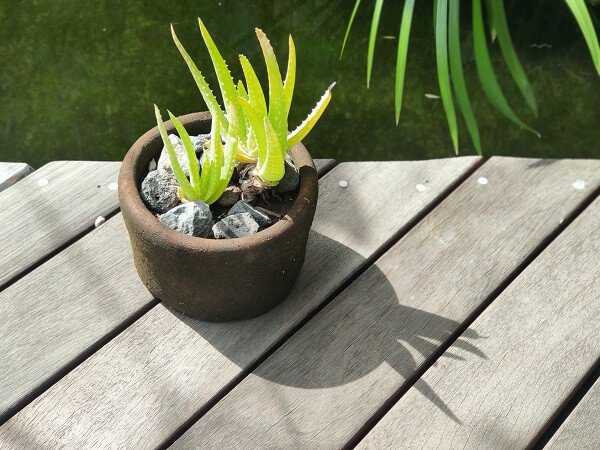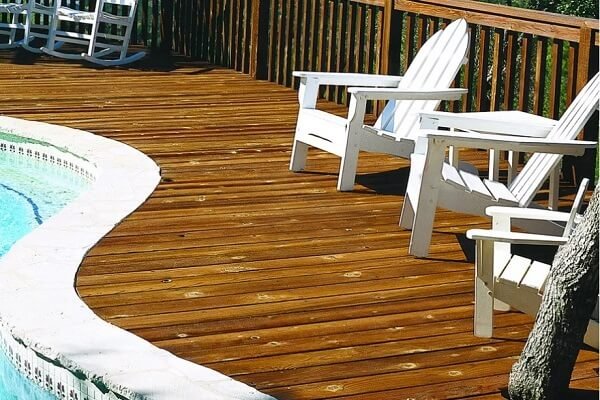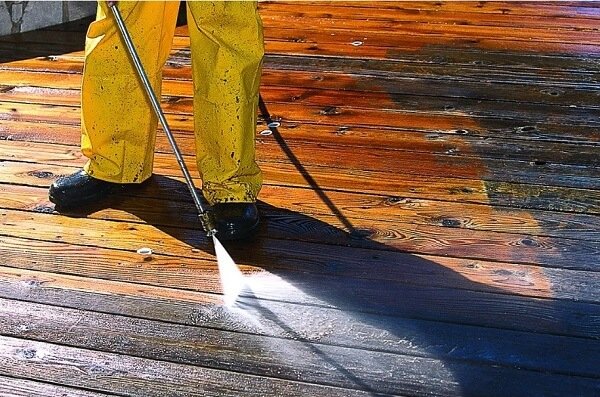Any home can be sublimed by having a deck. It’s almost like a new room, minus walls and roof (usually) so that you can appreciate being outdoors in a comfortable way. But by definition, deckings are subject to many elements with weather and traffic taking a toll on your once beautiful leisure area.
ironwood decking and fish pond
There are plenty of DIY instructions on the internet about what you should do when the time comes to fix your deck. However, it can be difficult to evaluate if it has reached the end of its life or if there is something you can do to save it.
So, are you wondering whether you should invest in a brand new deck or do whatever is in your power to extend the life of the one you already have?
Wellbeing First
More than whatever else, your home should be a safe haven. This is particularly true if you have children going around who may not perceive if something is a risky construction or not. As decks progress in years, they can foster spoiled uneven boars or uncovered nails. Any of these issues could be extremely risky and lead to serious wounds. Thus, assuming that you have an old deck and question its safety, you better keep people away until you know what to do. Get yourself a good checklist and off you go!
Assess Your Current Deck
The most important phase in your restore or supplant choice includes playing out a visual examination of your deck. A lot of things can be evaluated by doing a straightforward examination. You need to seek information about the condition of the wood, metal, or composite materials.
Make sure to keep an eye for the following issues:
Rotting posts or support beams
Detachment between the deck and your home
Heaps of harm to the deck boards or surface material
Wobbly railings or steps
Stained or sporadic colors on your wood
Ground instability around your supporting posts
In the event that your visual examination uncovers just minor issues — and the deck presents no obvious risks — then you can begin making arrangements to resuscitate it. While fixing your deck, having a list of objectives in mind is a critical step. Make sure to have a good idea the time it will take, the materials you'll require, and the abilities to refresh it. While assembling this data, you might realise that you would be better to just replace it.
Keep in mind, it's a lot simpler to adjust your perspective before you start the work than later.
Discussing adjusting your perspective, regardless of whether your deck can be fixed, you might choose to refresh it utilising an altogether unique style. Depending on its size, some unacceptable colour variety, or in some unacceptable location, then, at that point, you should construct a totally new deck with new material. When you sort out the ultimate objective for your deck, you'll have a better idea about what to do.
Decide Your Budget
The expense of resuscitating a deck as opposed to supplanting one is likewise a significant component to consider. With the exception of a couple of occurrences, it's quite often more costly to construct another deck than to resuscitate a current deck. Restoring a deck might include things like staining and painting or supplanting a couple of sheets, however a deck substitution will be substantially more broad and costly. On the off chance that you're on a strict spending plan, you might need to think about restoring your deck. Notwithstanding, on the off chance that cash isn't an issue, then supplanting your deck with another one will allow you to plan precisely what you need. Regardless of what you choose, you'll need to ensure the task is finished right.
Get Professional Assistance
Try not to let stress take over your deck and hold you back from appreciating it. Whether you choose to supplant or restore your deck, it is always recommended to choose the best expert for you. At the point when you entrust us with your deck, he ensures his skills and work ethics. If you are not sure about what to do about your deck, an expert will direct you through the maintenance versus substitution process, assist you with pursuing the ideal choice, and plan what your following stages ought to be.





